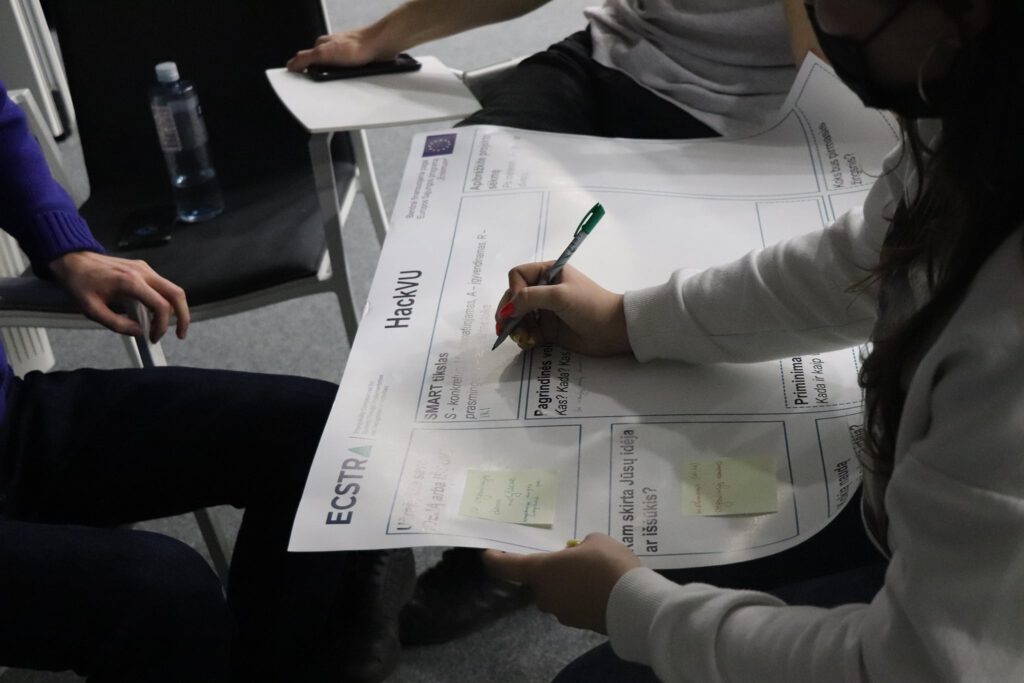On the 27th of September, LieU’topie hosted the ECSTRA Student Volunteering Recognition and Valorization Success Symposium in its community café. Organized by UJM (Université Jean Monnet) with support from LieU’topie, the event gathered personnel and representatives from UJM, UCA (Université Clermont Auvergne) and LieU’topie.
All attendees were part of departments concerned with skill valorization be it the Vice-presidency, the student life department, pedagogic engineers or career counselors.
In the morning, Lucas, International Officer of UJM, presented the ECSTRA project and the non-formal skill recognition framework that has been developed as a tool to facilitate skill identification by students and their certification by universities.
Pros and cons of the auto-evaluation methodology were discussed among attendees, with experiences shared by student volunteers of LieU’topie and university staff shedding light on the complexity of creating a sufficiently objective evaluation framework. Indeed, Pauline, who accompanied student volunteers of LieU’topie, observed that they would tend to underappreciate their skill level. Attendees additionally shared their viewpoint and practices on skill recognition for students as well as how they could appropriate the ECSTRA tools in their approach.
In the afternoon, Mathieu, co-president of LieU’topie, gave an overview of the organization’s history and activities before Pauline, Research Officer for ECSTRA of LieU’topie, detailed the initiatives implemented by partners during the project. In particular, she gave feedback on the skills developed by volunteers during LieU’topie’s initiatives (Karaoke booth included and A vegetable garden by and for students). Those examples demonstrated volunteering in activities can be a formidable catalyst to acquire or develop new and essential skills.
ECSTRA Initiative Success Symposium is one of the project’s activities “ECSTRA: Employability Competencies for Students Through implementation and Recognition of Activities” (No. 2020-2-LT02-KA205-007038). The project is funded by the Erasmus+ program of the European Union.



